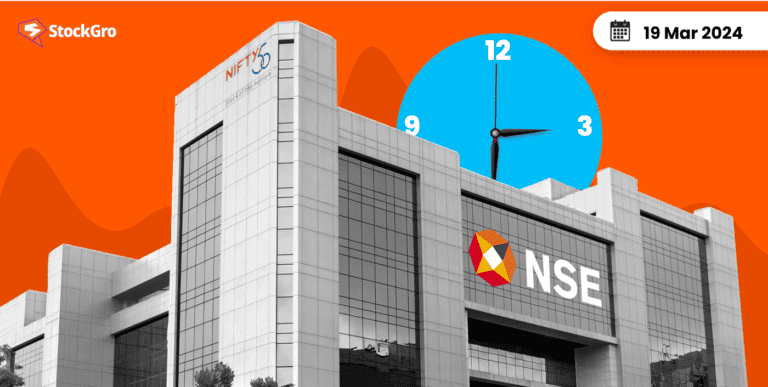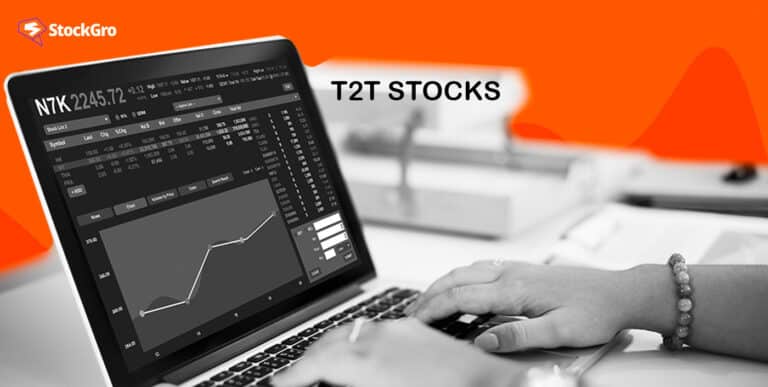Table of contents
The derivative market is known for the risk-mitigating opportunities it offers to investors. Not just in hedging risks, the derivative market also offers varied features to investors, including different kinds of contracts, strategies and even different types of settlements.
Today’s article primarily deals with the settlement of derivative trades, the two common modes – cash and physical settlement, and the differences between the two.
What are derivatives?
Derivatives are contracts in the stock market whose value relies on an underlying asset. Futures, options, etc., are examples of derivative markets.
A future trade is where two traders enter into a contract to buy or sell assets on a future date at a pre-agreed price.
An options contract is a futures contract, too, but with a twist. The options holder here has the authority to decide whether the contract must be executed or cancelled on the date of options expiry.
Traders settle the trades on the date of contract expiry. Here is where cash settlement comes into the picture.
What is a trade settlement?
Before delving into the details of cash settlement, it is essential to brush through the basic concepts of settlement and derivative contracts.
Settlement is the last leg of the trade cycle. It is where the final exchange of assets and cash takes place between two traders. A trade is settled after the buyer moves cash to the seller’s account. In parallel to the movement of cash, the seller transfers to the buyer, the physical possession and the ownership of the asset.
What is a cash settlement?
A cash settlement is one of the common modes of settling derivative contracts. In this case, traders do not exchange assets and cash with each other. Instead, they exchange profits.
Consider an example of cash settlement to understand its working better.
Trader ‘P’ enters into a futures contract with Trader ‘M’ to buy 100 litres of oil at ₹60 per litre after one month. On the contract expiry date, the oil prices have gone up to ₹65. So, Trader ‘P’ makes a profit of ₹5 (65-60) per litre. Trader ‘M’ transfers ₹500 (5*100 litres) to Trader ‘P’ to settle the trade. This is an example of cash settlement in a futures contract.
What is a physical delivery?
Another mode of settling derivative contracts is through physical delivery. In this case, the seller transfers the asset’s ownership and physical possession to the buyer on the contract expiry date.
In the above example of the futures contract, the seller sends 100 litres of oil to the buyer, while the buyer transfers the entire transaction amount of ₹6,000 (60*100) to the seller.
Difference between cash settlement and physical settlement
| Cash settlement | Physical settlement |
| It does not involve physical possession of assets. | It involves the physical possession of assets. |
| Only the net delta between the strike price and the spot price is transferred. | The buyer must transfer the entire transaction amount to the seller. |
| It is suitable when traders take a bet on the asset’s prices for profits. | It is suitable, particularly for commodities, where traders need the underlying goods for further activities. |
| It is more favourable as it there is no hassle of transportation. | It is more laborious and tedious since it requires the trader to transfer goods physically. |
| Additional charges are low since traders only transfer the net profit in cash. | Additional costs, such as transportation charges, freight, etc., make the transaction more expensive. |
Advantages of cash settlement
- Cash settlements require investors to have limited capital. Hence, more traders can enter such transactions.
- These settlements are hassle-free since they do not involve the transferring of bulky assets in huge quantities.
- The risks of transferring assets, such as theft or damage, are mitigated under cash settlement.
- Since these contracts require traders to maintain margins in their accounts, defaults on cash settlements are rare.
Bottomline
Cash settlement and physical delivery are two commonly used settlement methods in derivative contracts. Physical delivery, as the term suggests, involves transferring physical assets, while cash settlement is restricted to transferring profits between the two traders.
Cash settlement is generally preferred over physical delivery by traders who aim to profit from the price volatility of assets. It is also more simple and quick to settle as compared to physical settlement.
FAQs
The cash settlement price is calculated on the basis of the strike price of derivative contracts and the spot price in the market. It is calculated as (Strike price – Spot price) * Number of units.
No, cash settlement is relatively cheaper than physical delivery. This is because it does not involve associated charges of delivery, such as transport and freight costs.
Trader A is the option holder and enters into an options contract to sell 100 litres of oil at ₹75 to Trader B after one month.
On the contract expiry date, oil’s price has risen to ₹80 in the market.
So, Trader A cancels the options contract and sells oil in the market.
Suppose the prices go down to ₹70, Trader A executes the contract, and Trader B must transfer ₹500 ([75-70]*100) to Trader A to settle the contract.
Yes, futures can be settled in cash. Unless physical delivery is essential, it is suggested to choose cash delivery to have a convenient settlement process.
Traders in the future market are required to maintain margin accounts. Based on the price fluctuations of the underlying asset, the trader’s margin account is debited or credited. This is called mark-to-market. On the date of expiry, the cash final settlement takes place between both the traders

